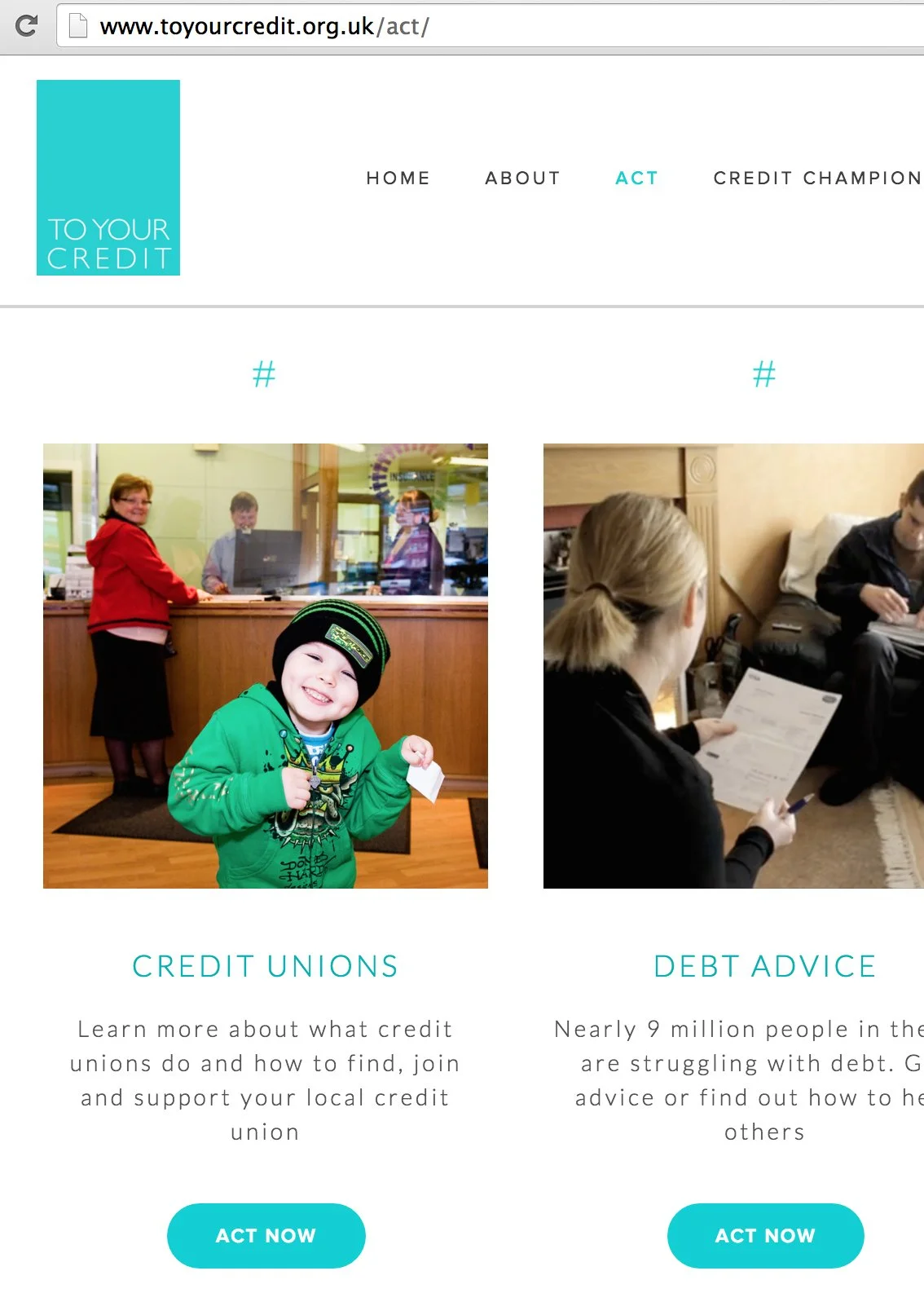
Driving national behaviour change.
Mobilizing Credit Union Growth
Just Finance Foundation
Association of British Credit Unions (ABCUL)
CLIENT
The Just Finance Foundation (JFF) is a prominent charity working within the financial and social impact sectors across the UK. Focusing on fostering financial literacy and resilience, it spearheads initiatives to tackle issues such as payday lending, promoting fairer financial practices.
BRIEF
Following the Archbishop of Canterbury's widely-publicised speech in the House of Lords denouncing payday lending and promoting credit unions, the Just Finance Foundation, in partnership with the Association of British Credit Unions (ABCUL), sought to build on this momentum to affect change. Kore was commissioned to develop a comprehensive strategy to drive national behaviour change, increase awareness of credit unions, and build a digital infrastructure to support ongoing mobilisation efforts.
Kore’s engagement with the Just Finance Foundation was rooted in high-level strategic thinking designed to capitalise on the national momentum created by the Archbishop’s campaign against payday lending. Recognising the need for sustainable change, we focused on ideating an overarching framework that not only raised awareness but also instilled long-term behavioural shifts toward ethical financial alternatives, like credit unions.
An in-depth analysis of societal attitudes towards payday lending and credit unions, utilising a combination of industry insights, cultural trends, and public sentiment enabled us to craft strategic pathways that would allow JFF to mobilise key communities and influence public opinion on a national scale. Our focus was transforming the issue from a conversation about financial services to a broader narrative about responsible financial behaviour and community resilience.
At the heart of our strategy was the creation of #toyourcredit, a parent brand designed to unify JFF’s efforts in the financial domain under a recognisable and impactful identity. This brand encapsulated the broader values of financial literacy, trust, and community empowerment, positioning JFF as a central figure in the fight for fairer financial practices in the UK. The brand was not simply a campaign tool; it became the platform from which all messaging, partnerships, and future initiatives would flow.
The strategy included the design of a behavioural change model that focused on key touchpoints across digital and physical platforms, encouraging community leaders and influencers to take an active role in promoting credit union membership. This involved fostering collaborations with diverse stakeholders, including financial institutions, local communities, and thought leaders. By connecting these groups, we were able to extend the reach and credibility of the campaign, creating a sustained and multi-layered approach to behaviour change.
Our strategic direction also shaped the digital engagement framework, ensuring that online interactions were not just about driving traffic but about creating meaningful engagement that aligned with broader organisational objectives. The user journeys and information architecture were structured to support the campaign’s long-term goals, with an emphasis on data-driven insights to optimise user interactions and measure campaign success.
Through this comprehensive approach, Kore helped JFF develop a national movement that resonated deeply with both grassroots communities, church networks via the Church of England and institutional stakeholders, fostering real-world change in financial behaviour and national policy.
IMPACT
Through a unified digital strategy and a well-defined taxonomy for user engagement, Kore empowered the Just Finance Foundation to mobilise national support for credit unions, helping to enact significant financial reforms and creating sustainable alternatives for communities across the UK.
In the months following the campaign launch 188 people per day joined credit unions, with 100,000 new credit union members recruited in the year following the campaign, representing a 9.1% growth in the sector.
The UK government introduced a payday loan cap of 0.8%, influenced by the public pressure generated by the campaign. Prior to the cap lenders had the freedom to set their own rates, which often resulted in high costs for borrowers. The Office of Fair Trading (OFT) reported that the previous average was an interest rate of 25% for a typical short-term loan.
With the Archbishop’s involvement, 71% of church leaders became familiar with credit unions, compared to 15% of the general population, illustrating the campaign’s effectiveness in reaching key community influencers.
ABCUL received a global award for outstanding membership growth, underscoring the far-reaching success of the campaign.
188 a day ⏱
People joining credit unions following launch
9.1% ⏶
growth in the national sector
0.8% ☒
Payday loan cap introduced by UK government (previous ave 25%)
Gallery







